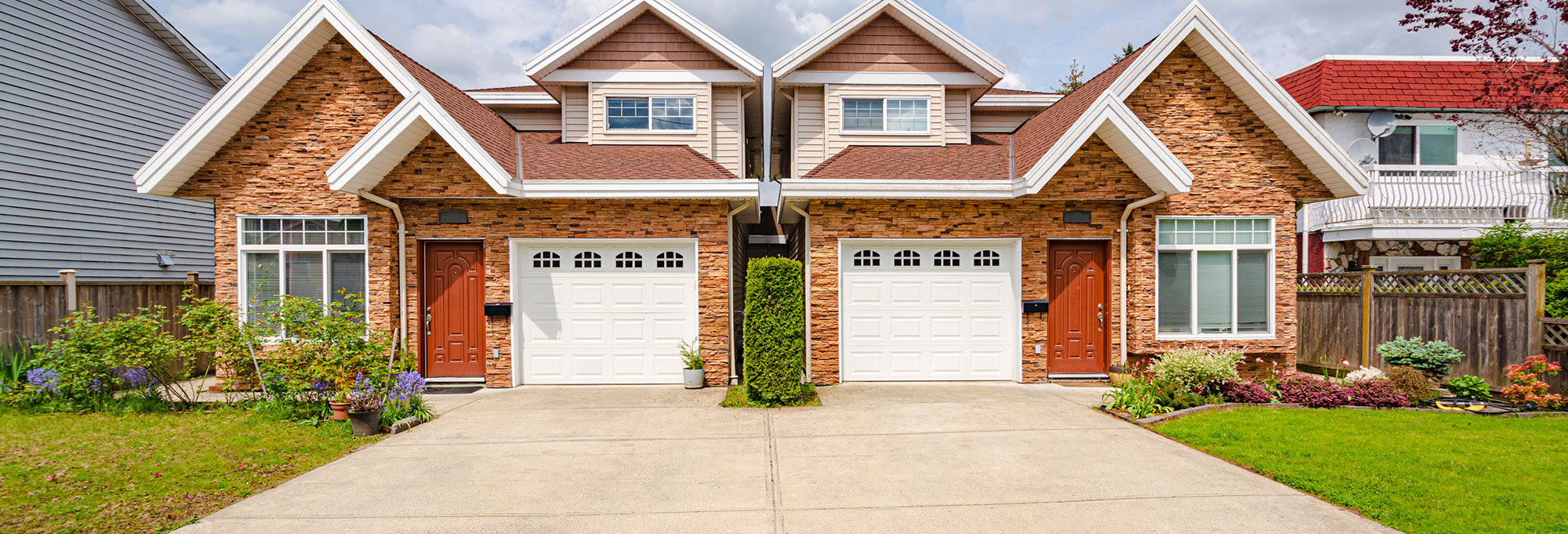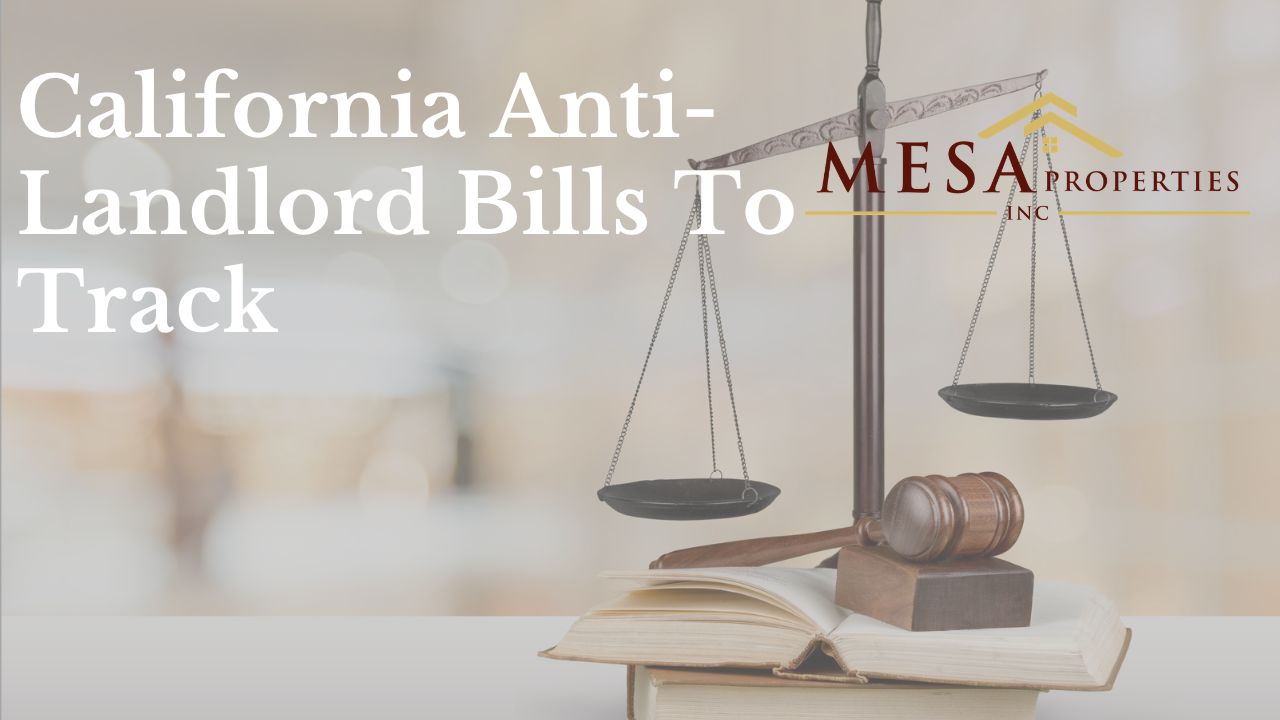One of the hardest parts about owning and managing residential rental property in California is keeping track of all the new laws. It seems like every time you turn around there’s a new bill working its way through the process that seeks to restrict landlord rights or to make it more difficult and complicated to be a landlord.
The rules seem to be ever-changing and ever-evolving with landlords consistently getting the short end of the stick with the passage of each new law.
Why is that?
There’s a few reasons that come to mind:
- Housing affordability is abysmal across the country and especially so in California. Lawmakers see it as one of their responsibilities to do something about it.
- California continues to teeter on the brink of becoming a renter majority state where over 50% of the population are renters instead of homeowners.
- Politicians want to get reelected. When over half of your constituents are renters and the consistent message that you hear is “the rent is too high” you want to do something about it to please the majority of voters.
- Homelessness is continuing to rise with the affordability crisis often taking the blame. Landlords are seen as contributors to the affordability crisis.
When you put all of these factors together, its easy to land on one common enemy - landlords.
And from a renter’s perspective and even from a lawmaker’s perspective, its not all that hard to see why landlords are seen as the bad guys.
After all, its the landlord who raised the rent and the landlord who wanted to terminate the tenancy so they could sell the property or move back into it. Shouldn’t they be prevented from doing that or at least regulated in that regard?
What is often not talked about are the demographics of millions of landlords in California.
When someone says the word “landlord,” the image that comes to mind is a Scrooge McDuck type character sitting on top of piles of cash while refusing to fix the broken air conditioner in a rental property because its “too expensive.”
And there probably are some landlords like that, but those aren’t the landlords we serve.
Almost all of the landlords that we manage rentals for are what would be considered “mom & pop” landlords. They aren’t corporations or multi-millionaires. They are regular people who saved like crazy so they could buy a modest investment property.
Or they’re frugal heirs of a relative’s property that they decided to rent instead of sell when their relative passed and they inherited the property.
Or they once lived in the home themselves and then had to move away for whatever reason and decided to keep their home as a rental instead of selling it. In fact, many of our landlords are renters themselves in whatever area they moved to!
Believe it or not, some have monthly obligations on their property that exceeds the rent amount! Meaning as an example, the property rents for $2,500 but it costs them $3,000 monthly to keep it after their mortgage, taxes, and insurance are all paid. They are losing money every month, not raking in the cash.
There is all kinds of pressure on landlords right now, not least of which is the increasing cost of insurance and even the ability to get insurance on a property. Recently, State Farm and Allstate have both announced that they are leaving the State, which will surely make insurance more expensive in California and harder to come by.
It is also significantly more expensive to do repairs with both labor and materials on all jobs substantially higher than they have been in years past.
So, with increasing price pressure, landlords do they only logical thing - raise the rent to try and keep up or terminate the tenancy because it no longer makes sense to keep the property as a rental.
All of this is said to provide context for the following bills that lawmakers and tenant advocacy groups would love to see passed, all of which would make it more complicated and less desirable to be a landlord in California.
SB 567
This bill seeks to make it more difficult for owners of rental properties that are subject to AB 1482 to terminate tenancies using the intent to substantially remodel the property just cause reason.
It would require owners to obtain permits before they would be able to terminate the tenancy, even if permits were not technically required for the work the landlord wanted to do.
It would also make it so that an owner who wanted to move back in had to have at least 51% ownership of the property. This means if you own rental property with your three brothers equally, you wouldn’t be able to terminate the tenancy for any of you to move in.
It also extends the amount of notice required to terminate a tenancy for the purpose of removing the property from the market to 120 days and makes it so that the buyer of a property that had a past tenancy terminated for this reason cannot turn the property into a rental.
Finally, this bill would impose massive penalties on landlords for violating it - up to three times the actual damages as well as punitive damages.
In its original form, this bill would have removed the single-family home exemption from AB 1482, which would have subjected millions of currently unaffected landlords to the Sate-wide just cause eviction requirements and rent caps. This exemption removal attempt will almost certainly reappear in future bills, which is why landlords should prepare for their single-family homes to become rent controlled across the State at some point in the future. Thankfully, that portion of the bill has been removed, as well as a clause that would have further restricted rent increases from where they currently are.
This bill has already passed the Senate and is on its way to the State Assembly.
AB 12
This bill seeks to limit all security deposits, no matter whether a unit is furnished or unfurnished, to one month’s rent.
Currently, landlords can charge two month’s rent for an unfurnished unit and three month’s rent for a furnished unit.
Many landlords have elected to charge two month’s rent for security deposits as a default option since an eviction in California can take months and be extremely costly. Landlords to this to offset the risk of renting out their properties. A law like this could cause many landlords to exit the market as the perceived risk of owning rental property is not worth the potential benefits.
This bill has passed the State Assembly.
SB 611
This bill is certainly not as significant as the others mentioned here, but there could be some potentially unintended consequences.
It mandates that landlords disclose all fees associated with the rental agreement. What’s unclear is if landlords are supposed to disclose varying costs such as utilities or if they just have to disclose application fees, rent, etc.
This bill was inspired by President Biden’s initiatives to try to remove so called “junk fees” in rental housing.
Fee disclosure is not a bad thing and is something that many landlords, our company included, already do. The issue is when it becomes mandated and is unclear on what needs to be disclosed. This lack of clarity can lead to landlords facing penalties for violating a law that wasn’t clear to begin with.
Stay In The Know
An important part of being a landlord in a highly regulated state like California is staying in the know. You need to be aware of these bills before they become law so you can take action while there is still time. Call your representative and voice your opposition to these bills and those like them!
Continue to stay on top of the changing legal environment and always play by the rules, no matter what they change to. Be fair with your tenants and keep your rent close to market. California is still a great state to own rental property in!




